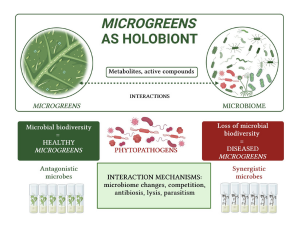The seminars are held at 16:30 via the Webex application (recording, privacy), and are conducted in English.
To receive information about monthly seminars, register here.
Contact:
Maksymilian Szymczak
 Web Content Display
Web Content Display
Web Content Display
Web Content Display
 Web Content Display
Web Content Display
Web Content Display
Web Content Display
The seminars are held at 16:30 via the Webex application (recording, privacy), and are conducted in English.
To receive information about monthly seminars, register here.
Contact:
Maksymilian Szymczak
 Web Content Display
Web Content Display
Web Content Display
Web Content Display
Pursuant to § 7 sections 1 and 3 of Resolution No. 61/X/2022 of the Senate of the Jagiellonian University of 26 September 2022 on: the rules of recruitment for the Doctoral School of Exact and Natural Sciences at the Jagiellonian University in the academic year 2023/2024, the Director of the Doctoral School of Exact and Natural Sciences announces a competition for 1 doctoral student with a scholarship financed from the research project funds as part of the PhD Programme in Biology education programme.
Within the NCN Opus 24 project entitled “Effect of light pollution on visual system aging - research based on Drosophila melanogaster model”, the project manager, dr hab. Milena Damulewicz., offers an opportunity to complete the doctorates in the following area (title):
Effect of light pollution on visual system aging - research based on Drosophila melanogaster model
After the interviews and the evaluation of the candidates, the Chairman of the committee presents a report to the Director containing a list of candidates recommended for admission to the school as part of the research project.
One of the aging symptoms is visual dysfunction, caused by retina degeneration. The retina of elder people shows many neurodegenerative changes, such as accumulation of protein aggregates, loss of synaptic contacts, chronic inflammation, retina-brain barrier leaking. Circadian disfunction is proven to accelerate the neurodegenerative processes. However, the cellular mechanisms linking the circadian clock to neurodegeneration is still poorly understood. Biological clock is self-sustained but entrainable by environmental conditions, like light. Visual system has its own peripheral clock, which regulates rhythms in the eye. Retina clock disruption may cause several symptoms and enhance aging processes. One of the main civilization threats of the modern world is artificial light and light pollutions. Additional exposure to light during the night causes clock disruption. Moreover, computers and tablets, which are used mostly during the late evenings, emit blue light which is the wavelength most affecting clock mechanism. These factors may affect biological clock mechanism and in effect cause sleep disorders and enhance neurodegeneration. In this project we plan to use a Drosophila model to explore the molecular mechanisms by which circadian light input can influence the etiology and progression of the retina neurodegeneration. We will focus on the effect of light and circadian entrainment on cell metabolism, with particular attention on mitochondrial dysfunction. The aim of this project is to show that clock disruption due to light pollutions affects cell metabolism in the eye of older people, and in effect causes retina degeneration.
Schedule of the competition:
Application documents for PhD study programme Phd Programme in Biology
Documents required for entry within PhD Programme in Biology.
In particularly justified cases, at the request of the Co-ordinator of the Education Programme, on the basis of a written justification submitted by the Candidate to Doctoral School, the Director of the Doctoral School may waive the requirement to submit an apostille or legalize university diplomas or other documents.
In the event of exposure to harmful, noxious or hazardous factors, the applicant will, at the time of registration, be referred for a medical examination by an occupational medicine physician. The candidate shall be obliged to deliver, within the time limit set by the programme manager, a medical certificate confirming the absence of contraindications to take up education (applies only to some PhD study programmes).
Any document submitted in a language other than Polish or English must be accompanied by a certified translation into Polish or English.
A person admitted to the doctoral school begin education and acquire doctoral student rights upon taking the oath.
